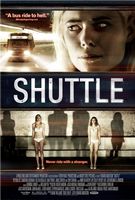One of the areas where many authors err in writing narrative is that they try to do other people’s jobs. It is important to remember that you are not the director, the editor, the costume designer, the set designer, the casting agent, etc. Think Birdie Coonan in All About Eve telling Margo Channing, after Eve Harrington has left with Margo’s costume, that nothing pisses dressers off more than someone else doing their job.
You are the writer. You write the story, the plot, the structure; you create the characters; you come up with the themes and ideas. You create the framework, the bedrock, upon which everybody else builds their vision (no matter what self important auteur wannabee director with a messianic complex may tell you).
For those of you who are playwrights, you should know most of this already. When it comes to narrative, a playwright only puts down what is necessary for the story to make sense. They can try and put down more, but believe me, the very first thing directors and designers do in reading a play is pretty much cross out anything that is not essential to telling the story. They means all scene, costume and character descriptions. They ignore all blocking and they, along with the actor, ignore all indications as to how one is to speak a line.
Have you ever read a play by Shakespeare? There is almost no narrative and what there is only what is essential to understanding what is going on (and not even always that; there are times when a line won’t make sense until one really deconstructs what is going on). This is pretty much the way you want your script to look.
So, here is an example of badly written narrative.
Femmy Fataly, a woman of 23 who has already seen better days, briskly enters the dining room with a wistful look on her face, as if she was thinking of that day long ago when she lost her virginity. She has kittenish cheeks, long black hair that goes on for miles, puffy deep blue green eyes and large breasts that makes construction workers whistle for hours. She caresses the lily white dress she wears (right; like she deserves to wear white) with long willowy fingers, one of which has a gold and silver ring made of intertwining dragons, which suggests something to her personality she’s not willing to share at the moment.
The dining room is filled with a mixture of antique and IKEA (Femmy’s ex-mother-in-law, the dragon lady as Femme would call her, just never understood her taste and would say so continuously). It has a huge picture window that let’s in so much light that if Femmy were a vampire (and her ex-mother-in-law often speculated such), that she’d be dust by now. On the walls are paintings that Femmy thinks are quality, but her ex-mother law knows better and says so as often as she can behind her back (in case you haven’t figured it out, Femmy and her ex-mother-in-law don’t get along). And the knick knacks that crowd the shelves could supply enough garage sales for months, and Femmy should know, since she visited enough of them growing up.
Femmy Fatale grew up dirt poor in the South in a trailer home destroyed by Katrina. Her saintly mother would walk fifteen miles in the snow to earn $150 a week scrubbing floors. Her father spent most of this time sleeping it off. Her brother was on his fifth child by his sixth girlfriend (he was only 18) when Femmy decided she had had enough and hitched her way to Dallas, being pick up along the way by an oil man who had her teeth fixed in exchange for favors rendered.
What’s wrong with this picture? If you don’t say something like “Where, oh, where to begin”, then you are someone we readers describe as a writer who really pisses us off. And if you think I’m making any of this up, I have read much more detailed narrative that what I wrote. So, to list:
1. As was stated in previous entries, the narrative paragraphs shouldn’t be any longer than 2 ½ to 3 lines. As we’ve also stated in previous entries, ditch the literary metaphors like the virginity thing; it’s annoying and if you’re doing your job, unnecessary.
2. Be careful about detailing how someone looks. There are several reasons for this. Believe it or not, what makes a character an individual is rarely what they look like. It’s their dialog and action that makes them real. Consider: would Femme Fatal be a different character if her hair was brunette rather than black, if her eyes were brown rather than deep blue? Would she essentially be any different if she didn’t have kittenish cheeks?
Another reason for not going into such detail, as I’ve been told, is that if you give a producer, director, production company, agent the detail above, they might say, “too bad, this might have been perfect for such and such who would sell her only adopted child for a role like this and wants to work in this genre, but she doesn’t look remotely like this character”. I’m not sure I fully believe it, but to quote Monty Python’s Flying Circus, “sheep are dim”, and many people claim that those in the industry have the brains of a sheep.
3. Don’t go into detail describing set and costumes. That’s what designers are hired to do. If you’ve done your job right, the designers will have no problem coming up with exactly what Femmy would wear and what her home would look like. Actually, even if you haven’t done your job, they’ll still do just fine. If the costume or set decoration is not essential, then don’t list them. In the movie Rebecca, the painting of a gorgeous woman displayed at the top of the stairway is necessary to the story and should be mentioned in the narrative somewhere along the way. The exact layout of the foyer and the various doors that lead elsewhere, don’t and therefore don’t need to be.
4. Don’t go into biographical detail of the character. The fact that Femmy survived Katrina is only important if it is part of the plot. If it’s part of the plot, then it will be revealed when it’s pertinent and this part of the narrative is redundant. If it’s not part of the plot, then it’s has no bearing on anything and is unnecessary.
5. Don’t direct the actor. The person who is getting paid ten times more than you are for participating in the movie will decided along with the director, also getting paid ten times more than you (bitter, no, I’m not bitter), whether they want to enter briskly and whether they want to look wistful.
Here is an example of how the narrative should read:
INT. DINING ROOM DAY
Femmy Fatale, a young woman in her early 20’s, with a nice body, enters a room of eclectic furniture, shelves overstuffed with Tzotchkes and walls covered with many paintings in bad taste.
Now that wasn’t so hard, was it? And you reduced the number of pages to your script by one. And most important, if you write narrative like that, you won’t be pissing us readers off.




















